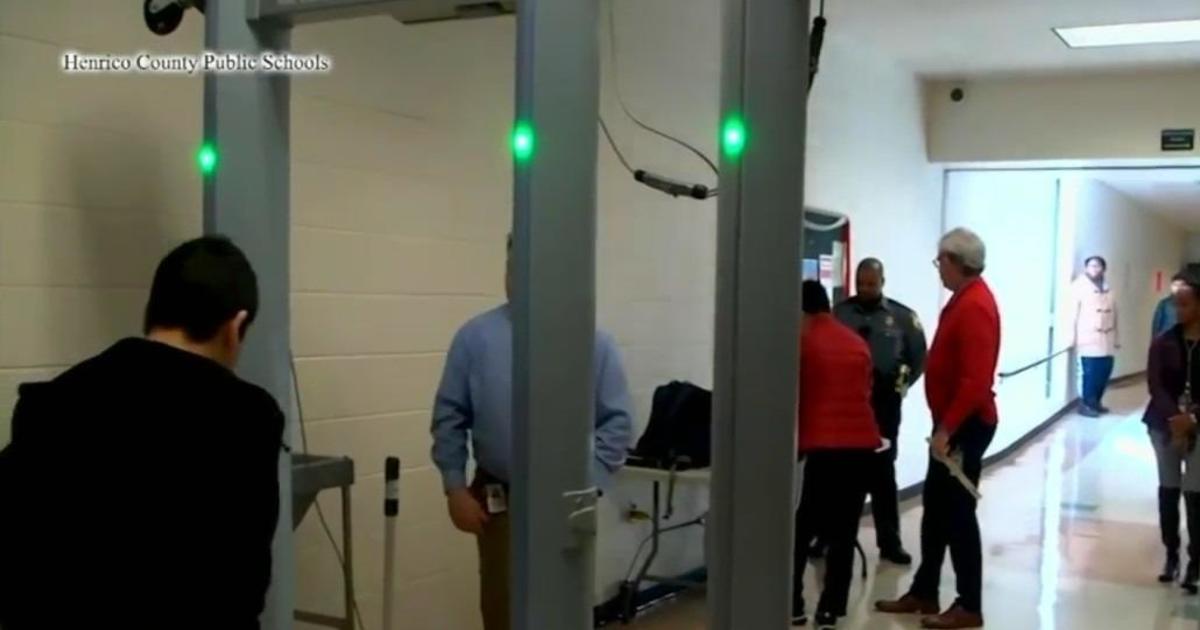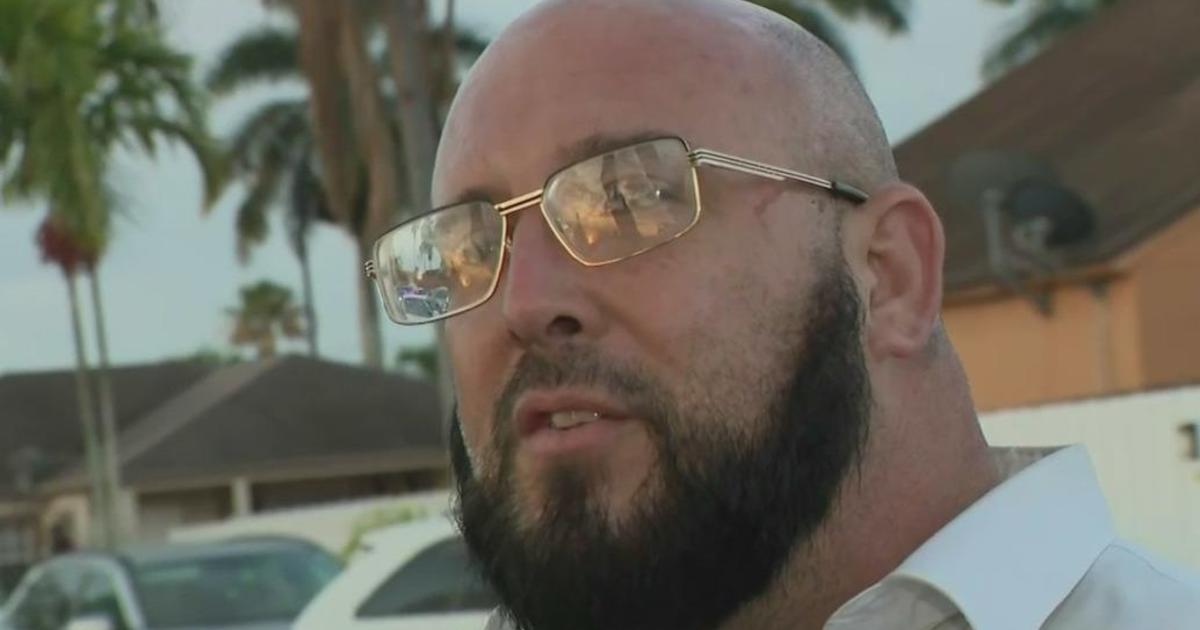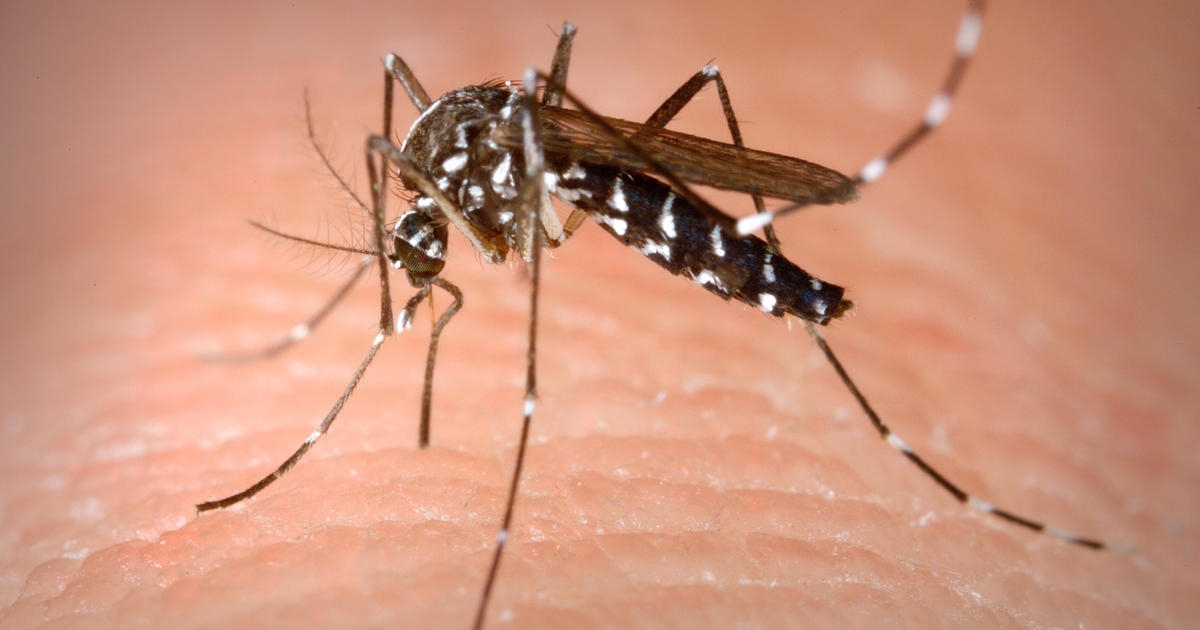Pilot Whales Behavior Raises Concern For Wildlife Experts
MIAMI (CBSMiami) – Wildlife experts were "cautiously hopeful" Thursday as dozens of short-finned pilot whales stranded Tuesday seemed to be heading back to home range in deeper waters. But after aerial observation, 20 of the whales were spotted moving closer toward shore, raising a red flag to experts.
The 20 whales were spotted about five nautical miles from the coast, which is one mile closer than Thursday. The animals, according to Blair Mase the Southeast Marine Mammal Stranding Coordinator from NOAA fisheries, appeared to be moving slower and were disorganized.
"There may be something going on that we don't understand," said Mase. "This point in time herding may not be the best interest of the animal."
Mase said that the whales slowing down could be a sign that the animals are sick or exhausted from stranding.
"At some point," Mase said, "we have to stand back and let nature take its course."
The pod, which is typically 25-50 whales, was originally comprised of 51 whales. Eleven of the whales have died and now several others are unaccounted for. Mase said that it's possible they've swam out, also, sometimes whales do sink to the ocean floor once they die.
Earlier Friday, 7 whales were spotted swimming southwest, in about 12-14 feet of water, from their location yesterday—which is about 9 miles north of where the whale originally stranded themselves
Three days after the 51 short-finned pilot whales were originally reported stranded in a remote location in Everglades National Park, while some in the pod have passed, others moved on.
It's possible, Mase said during a conference call, since pilot whales are a cohesive species, meaning they stick together, that the whales could possibly be moving slowly because of a member of the pod is sick—but that has yet to be determined.
The results of the necropsies done on the 11 dead whales could take anywhere from weeks to months, and, as of now, nothing obvious has come up in the results, Mase said. Some of the deep-sea whales, however, did appear to be malnourished.
On Thursday, the U.S. Coast Guard joined NOAA, Florida Fish and Wildlife Conservation Commission, the Marine Animal Rescue Society out of Miami, and Marine Mammal Conservancy, along with the aid of the National Park Service, in assisting to try to save the stranded whales.
NOAA received a call late afternoon Tuesday about stranded whales. Due to their remote location, experts were not able to reach the whales until Wednesday morning.
Upon arrival, experts found a total of 51 short-finned pilot whales, six of them dead, stranded off the Highland Beach area of Everglades National Park. Vets on scene had to euthanize four of the stranded whales Wednesday.
The free-swimming whales were in 2-4 feet of water and about 20 miles away from their natural deep-sea habitat.
A total of 15 vessels and 35 people, as per Blair Mase the Southeast Marine Mammal Stranding Coordinator from NOAA fisheries, went out Thursday to try to help herd, asses the live and take samples from the whale carcasses.
Herding with boats and loud noises is just one of the efforts volunteers attempted Thursday for the dozens of pilot whales.
Mase, on a conference call, said that while all the whales have not been located, two separate pods of about 15-20 were spotted about 5-10 miles north of where they were swimming yesterday—in about 12 feet water in Seminole Pointe in Monroe County.
"Milling close to shore is not a part of their regular behavior. They're deep sea animals, deep divers, they shouldn't be so close to shore, that's part of how we I know that something is very wrong when we see them this close to shore," said Liz Stratton with NOAA.
Wildlife officials are now trying to figure out what may have caused them to come so close to shore, some beaching themselves.
"There are a lot of theories. Animals can be sick and they come up on the beach. Sometimes with pilot whales when one or more animals is ill the whole group will come up. So sometimes you have to distinguish which is ill," said Stratton.
This is not the first mass stranding here. Two years ago, 14 pilot whales beached themselves near Key West. Only a few were able to make it back into the wild.



